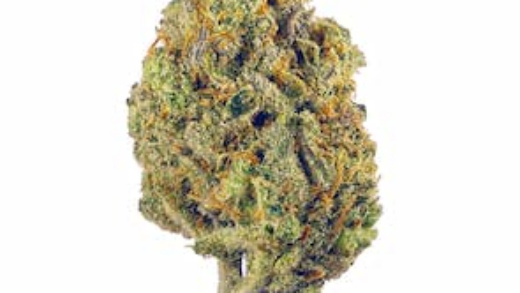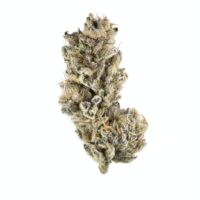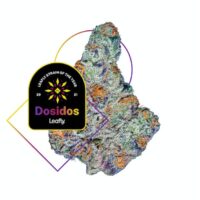On July 4, 1776—247 years ago—the Second Continental Congress unanimously adopted the Declaration of Independence, announcing the colonies’ separation from Great Britain. Many of them not only grew hemp but insisted how important the plant is to the foundation of American agriculture. Sorting through rumors about the Founding Fathers and hemp is another story, with invented quotes and misinformation.
The Declaration’s blanket assertion, “all Men are created equal,” should be taken with a grain of salt given that many Founding Fathers owned slaves, and Thomas Jefferson’s and Henry Clay’s slaves also grew hemp. It would take a lot longer for actual equal rights to materialize.
In colonial times, hemp was an acceptable form of tax payment for over 150 years. Here’s the top Founding Fathers who farmed, milled, processed, or advocated for hemp.

George Washington
MountVernon.org, George Washington’s estate, admits he grew hemp extensively and compared it to tobacco. “Throughout his lifetime, George Washington cultivated hemp at Mount Vernon for industrial uses,” Mount Vernon writes. “The fibers from hemp held excellent properties for making rope and sail canvas. In addition, hemp fibers could be spun into thread for clothing or, as indicated in Mount Vernon records, used in repairing the large seine nets Washington used in his fishing operation along the Potomac.”
Nearly half a million Americans die annually from tobacco-related illness, but to think that it could have been avoided if Washington had his way is powerful. “At one point in the 1760’s Washington considered whether hemp would be a more lucrative cash crop than tobacco but determined wheat was a better alternative.” Today scholars can sift through George Washington’s detailed grow log.

Thomas Jefferson
Jefferson’s hemp crops were massive, and he enlisted slaves to grow it. “Enslaved laborers cultivated hemp both at Monticello and Poplar Forest, Jefferson’s plantation in Bedford County, Virginia,” Jefferson’s estate Monticello.org writes. Jefferson once used 48 pounds of hemp to make clothing for child slaves.
Jefferson’s massive plantation could yield up to 150 pounds in one day: “A hand can tend 3 acres of hemp a year,” Jefferson’s journal reads. Tolerable ground yields 500. lb to the acre. You may generally count on 100 lb for every foot the hemp is over 4 f. high. A hand will break 60 or 70 lb a day, and even to 150 lb.” You can read page 95 of his hemp journal in his own handwriting here.
American-made threshing machines, invented around the time of the Declaration, were used for hemp and were a symbol of power over Great Britain’s dominance.

Thomas Paine
Thomas Paine’s Common Sense spurred the revolution and it had the largest sale and circulation of any book published in American history when it was published in 1775. It convinced colonists that they were being exploited by the Crown. “In almost every article of defence we abound,” the pamphlet reads. “Hemp flourishes even to rankness, so that we need not want cordage.” The latter line stirred up speculations, but “rankness” apparently means “fruitfulness” i.e. ensuring that the colonists would not run out of hemp rope.

Benjamin Franklin
Benjamin Franklin owned a hemp-paper mill and published content about hemp’s medical properties. Franklin published the Pennsylvania Gazette, and in it excerpted Ephraim Chambers’ Universal Dictionary, writing that hemp is “of great Use in the Arts and Manufactories,” and that “The Seed is said to have the Faculty of abating Venereal Desires; and its Decoction in Milk, is recommended against the Jaundice.” You can see the original edition here.
Like Washington, Franklin also had a change of heart on the issue of slavery, and was the first president of an abolitionist society, however little changed during his lifetime on the embedded institution of slavery.

Alexander Hamilton
Alexander Hamilton, America’s first Secretary of the Treasury, oversaw hemp imports in the States, and once imposed a 5% tax on hemp imports in 1790. “… All other goods imported from Foreign Countries shall be liable to a duty of 5 per Cent ad-Valorem, excepting certain articles deemed of importance to Manufactures, among which Hemp is not,” Hamilton wrote on May 21, 1790. “It is therefore certain, that a Duty of five per Cent accrues on the importation of Hemp into the United States from any Foreign Country.”

Henry Clay
Clay ran unsuccessfully for presidency three times, which is why his name is mentioned less often. Clay was also very enthusiastic about hemp and forced his slaves to farm it. “Hemp was Henry Clay’s most lucrative cash crop at Ashland,” HenryClay.org writes. “Men enslaved by Clay grew thousands of pounds of hemp and manufactured it into rope and bagging for the cotton industry. Clay was interested in experimentation and pursued many new innovations in equipment and hemp varieties.”

James Madison
James Madison, America’s fourth President and “Father of the Constitution,” was also reportedly a hemp farmer and claimed that hemp gave him the insight to create a new democratic nation. Launched in 2015 by faculty from the Departments of Biology and Engineering, James Madison University’s Industrial Hemp Research Program coordinates university expertise toward laboratory research.
Author
Benjamin M. Adams is Staff Writer at High Times, and has written for Vice, Forbes, HuffPost, The Advocate, Culture, and many other publications. He holds a Bachelor of Communication from Southern New Hampshire University.

Sign Up for Our Newsletters
Get notified of our the latest cannabis news, exclusive brand deals, events updates and more!













